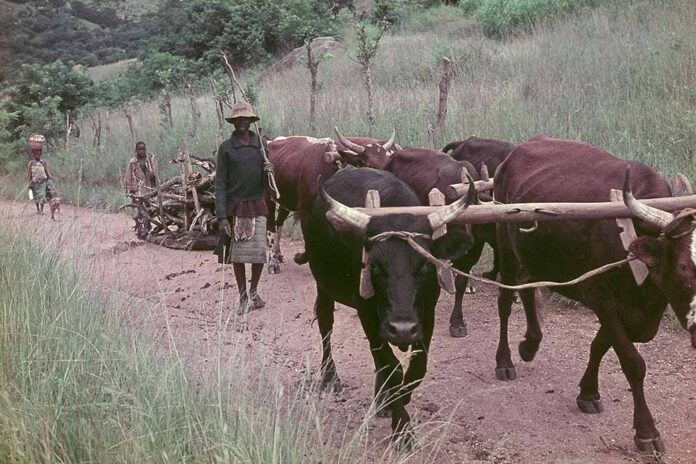Local residents of Ojama village in Kangodo parish, Kyere sub-county in Serere district, are facing significant challenges related to the intensified use of bulls for pulling heavy loads on unpaved roads, a practice that has contributed to the degradation of road surfaces, leading to increased soil erosion on roads and making them impassable.
As a result, the poor road infrastructure has hindered economic development by hampering the movement of goods and services and discouraging investment in affected communities, causing a prevalence of accidents and an increased level of death due to the inaccessibility of hospitals by patients.
The Chairperson Local Council One (LC I) of Ojama Central, Godfrey Olupot, said on Tuesday, November 12, 2024, in a phone interview that the use of oxen as a means of transport by pulling farm and building materials scratches road surfaces and losens compacted marrum, leading to increased runoff during rainfall.
Olupot added that many farmers in his area practice this particular activity of using bulls to pull loads such as oxplough and timber, among others, that end up creating unwanted waterways, causing severe soil erosion, and leaving roads in poor state and calling for repairs.
“This heavy-load transportation with the use of bulls for transporting goods by some hard-headed farmers causing road surface disruption will come to an end because we sat as a committee to resolve the matter,” he said.
Read Also: Mulching: A Sustainable Solution for Soil Erosion, Fertility in Uganda
The LCI secretary of Aminit-Ojama village, Ronald Odeke, said that some farmers pay a deaf ear even when cautioned about their acts, and others lack knowledge about the outcomes that are created from scratches on the unpaved roads, which affect road users within and the entire public.
“We have been advised by the district administration to give a fine of 200,000 shillings to those found degrading roads as a means to address the issues caused by bull usage and road degradation as a strategy to mitigate these acts,” he said.
Simon Aagon, a concerned citizen, said that locals need to support road infrastructure maintenance by stopping those who are found to be degrading roads as a means to reduce government expenditure and let that money be used for buying more medicine and be put in government hospitals.
“I think locals need to be sensitized to have knowledge about these unpaved roads and any other roads outside there by giving information on sustainable practices on these roads,” Aagon said.
In Uganda, 41% of the country’s total area is experiencing degradation, and 12% is in a severe state of degradation, mostly soil erosion being a common form of degradation that is found on 85% of degraded roads that increases the government’s expenditure on road repairs.
While the use of bulls for pulling heavy loads became a traditional practice among some farmers in Ojama, it significantly contributed to soil erosion and land degradation as a means of addressing these challenges through improved practices, and infrastructure is essential for sustaining roads in Ojama.















